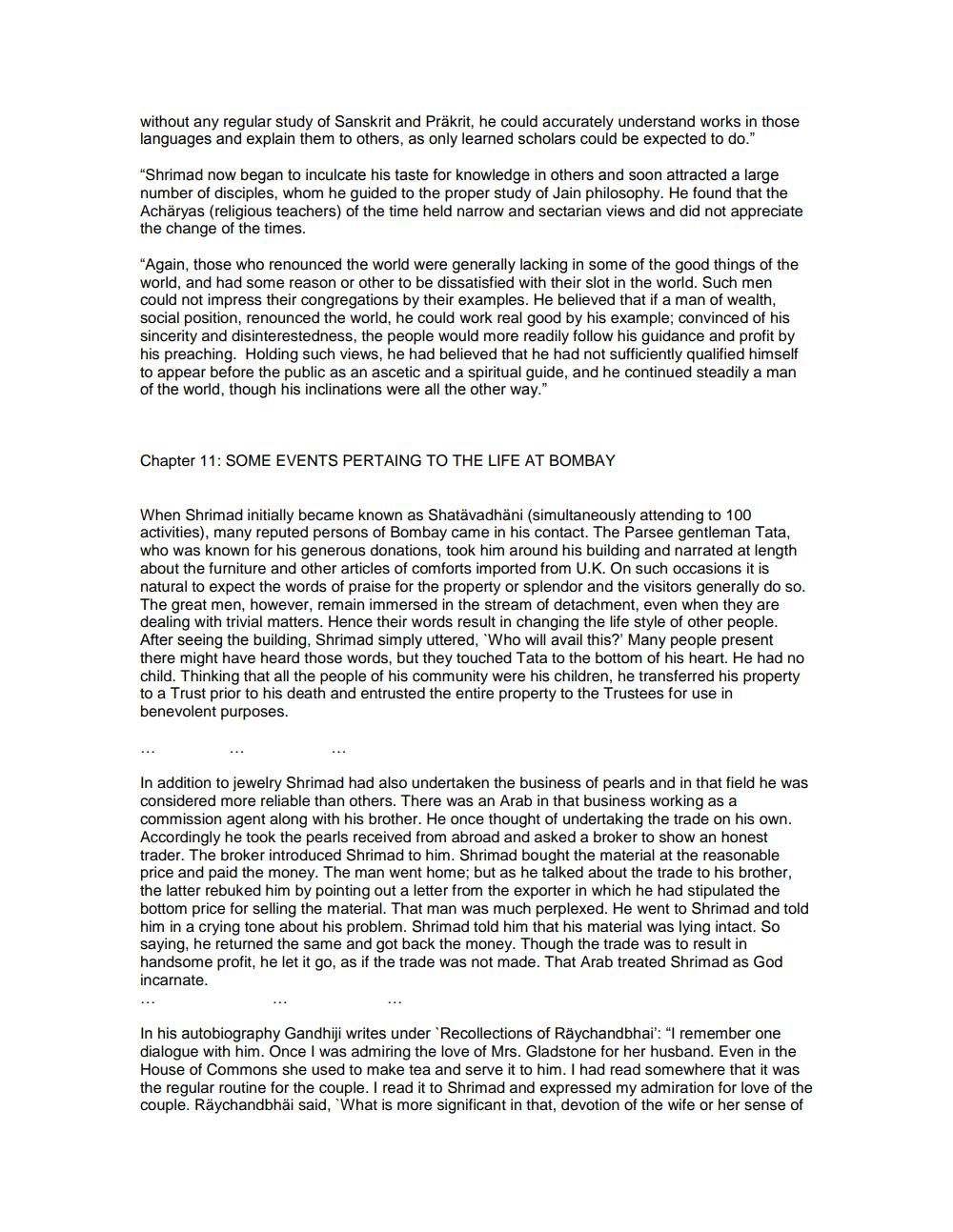________________
without any regular study of Sanskrit and Präkrit, he could accurately understand works in those languages and explain them to others, as only learned scholars could be expected to do."
"Shrimad now began to inculcate his taste for knowledge in others and soon attracted a large number of disciples, whom he guided to the proper study of Jain philosophy. He found that the Acharyas (religious teachers) of the time held narrow and sectarian views and did not appreciate the change of the times.
"Again, those who renounced the world were generally lacking in some of the good things of the world, and had some reason or other to be dissatisfied with their slot in the world. Such men could not impress their congregations by their examples. He believed that if a man of wealth, social position, renounced the world, he could work real good by his example; convinced of his sincerity and disinterestedness, the people would more readily follow his guidance and profit by his preaching. Holding such views, he had believed that he had not sufficiently qualified himself to appear before the public as an ascetic and a spiritual guide, and he continued steadily a man of the world, though his inclinations were all the other way."
Chapter 11: SOME EVENTS PERTAING TO THE LIFE AT BOMBAY
When Shrimad initially became known as Shatavadhani (simultaneously attending to 100 activities), many reputed persons of Bombay came in his contact. The Parsee gentleman Tata, who was known for his generous donations, took him around his building and narrated at length about the furniture and other articles of comforts imported from U.K. On such occasions it is natural to expect the words of praise for the property or splendor and the visitors generally do so. The great men, however, remain immersed in the stream of detachment, even when they are dealing with trivial matters. Hence their words result in changing the life style of other people. After seeing the building, Shrimad simply uttered, 'Who will avail this?' Many people present there might have heard those words, but they touched Tata to the bottom of his heart. He had no child. Thinking that all the people of his community were his children, he transferred his property to a Trust prior to his death and entrusted the entire property to the Trustees for use in benevolent purposes.
In addition to jewelry Shrimad had also undertaken the business of pearls and in that field he was considered more reliable than others. There was an Arab in that business working as a commission agent along with his brother. He once thought of undertaking the trade on his own. Accordingly he took the pearls received from abroad and asked a broker to show an honest trader. The broker introduced Shrimad to him. Shrimad bought the material at the reasonable price and paid the money. The man went home; but as he talked about the trade to his brother, the latter rebuked him by pointing out a letter from the exporter in which he had stipulated the bottom price for selling the material. That man was much perplexed. He went to Shrimad and told him in a crying tone about his problem. Shrimad told him that his material was lying intact. So saying, he returned the same and got back the money. Though the trade was to result in handsome profit, he let it go, as if the trade was not made. That Arab treated Shrimad as God incarnate.
In his autobiography Gandhiji writes under "Recollections of Räychandbhai': "I remember one dialogue with him. Once I was admiring the love of Mrs. Gladstone for her husband. Even in the House of Commons she used to make tea and serve it to him. I had read somewhere that it was the regular routine for the couple. I read it to Shrimad and expressed my admiration for love of the couple. Räychandbhai said, 'What is more significant in that, devotion of the wife or her sense of




